EMERGENCE AND INNOVATION IN DIGITAL LEARNING
Issues in Distance Education
Series editor: Terry Anderson
Distance education is the fastest-growing mode of both formal and informal teaching, training, and learning. It is multi-faceted in nature, encompassing e-learning and mobile learning, as well as immersive learning environments. Issues in Distance Education presents recent research results and offers informative and accessible overviews, analyses, and explorations of current topics and concerns and the technologies employed in distance education. Each volume focuses on critical questions and emerging trends, while also situating these developments within the historical evolution of distance education as a specialized mode of instruction.
Series Titles
The Theory and Practice of Online Learning, Second Edition
Edited by Terry Anderson
Mobile Learning: Transforming the Delivery of Education and Training
Edited by Mohamed Ally
A Designers Log: Case Studies in Instructional Design
Michael Power
Accessible Elements: Teaching Science Online and at a Distance
Edited by Dietmar Kennepohl and Lawton Shaw
Emerging Technologies in Distance Education
Edited by George Veletsianos
Flexible Pedagogy, Flexible Practice: Notes from the Trenches of Distance Education
Edited by Elizabeth Burge, Chre Campbell Gibson, and Terry Gibson
Teaching in Blended Learning Environments: Creating and Sustaining Communities of Inquiry
Norman D. Vaughan, Martha Cleveland-Innes, and D. Randy Garrison
Online Distance Education: Towards a Research Agenda
Edited by Olaf Zawacki-Richter and Terry Anderson
Teaching Crowds: Learning and Social Media
Jon Dron and Terry Anderson
Learning in Virtual Worlds: Research and Applications
Edited by Sue Gregory, Mark J. W. Lee, Barney Dalgarno, and Belinda Tynan
Emergence and Innovation in Digital Learning: Foundations and Applications
Edited by George Veletsianos
EMERGENCE AND INNOVATION IN DIGITAL LEARNING
foundations and applications
Edited by
George Veletsianos

Copyright 2016 George Veletsianos
Published by AU Press, Athabasca University
1200, 10011 109 Street, Edmonton, AB T5J 3S8
ISBN 978-1-77199-149-0 (print) 978-1-77199-150-6 ( PDF ) 978-1-77199-151-3 (epub)
doi: 10.15215/aupress/9781771991490.01
A volume in Issues in Distance Education series:
ISSN 1919-4382 (print) 1919-4390 (digital)
Several chapters in this volume were first published in the book referenced below.
Those chapters have been significantly updated and revised for this publication.
Veletsianos, G. ed. (2010). Emerging Technologies in Distance Education.
Edmonton: Athabasca University Press.
Cover and interior design by Sergiy Kozakov
Printed and bound in Canada by Friesens
Library and Archives Canada Cataloguing in Publication
Emergence and innovation in digital learning : foundations and applications / edited by George Veletsianos.
Includes bibliographical references and index.
Issued in print and electronic formats.
1. Distance educationTechnological innovations. 2. Educational technology.
I. Veletsianos, George, author, editor
LC5800.E44 2016 371.358 C2016-902638-8
C2016-902639-6
We acknowledge the financial support of the Government of Canada through the Canada Book Fund (CFB) for our publishing activities.

Assistance provided by the Government of Alberta, Alberta Media Fund.

Please contact AU Press, Athabasca University at aupress@athabascau.ca for permissions and copyright information.
Contents
George Veletsianos
George Veletsianos
Jen Ross and Amy Collier
Terry Anderson
Royce Kimmons and Cassidy Hall
Elizabeth Wellburn and B. J. Eib
R. S. Baker and P. S. Inventado
Andrew Whitworth and Angela D. Benson
Trey Martindale and Michael Dowdy
Alec Couros and Katia Hildebrandt
Rolin Moe
Beth Perry and Margaret Edwards
George Veletsianos
Acknowledgements
This volume would not have been possible without the work of the contributors who shared their valuable insights.
I am indebted to the Canada Research Chairs program for the support provided to my research endeavours.
I am also thankful for the support, assistance, and hard work I received from the staff at Athabasca University Press.
Throughout my academic career, I have had the good fortune to interact with a network of peers and students who have helped me become a better educator, scholar, and academic citizen.
Many of my colleagues at Royal Roads University have supported me in innumerable ways to complete this work. My thanks to Jo Axe, Doug Hamilton, Elizabeth Childs, Samantha Wood, Robynne Devine, Deborah Zornes, Mary Bernard, matt heinz, and Steve Grundy.
I am indebted to Laura Pasquini who worked with me as a post-doctoral associate and edited some segments of this volume.
My students in Canada, the UK, and the US, through their insightful questions, eagerness to learn, and inquisitive natures have helped made me a better teacher and scholarand I appreciate them for that.
Introduction
 George Veletsianos
George Veletsianos
Educational systems worldwide are facing enormous shifts as a result of sociocultural, political, economic, demographic, and technological changes. Emerging technologies (social media, serious games, adaptive software) and emerging practices (openness, user modeling) in particular, have been heralded as providing opportunities to transform education, learning, and teaching. Such discussions often postulate that new ideaswhether technologies or practiceswill address educational problems (open textbooks may perhaps make college more affordable) or provide opportunities to rethink the ways that education is organized and enacted (for example, the collection and analysis of big data may enable designers to develop algorithms that provide early and critical feedback to at-risk students). Yet, the ways that emerging innovations and practices are used in digital learning contexts are much more complex and elusive. In this book, I amalgamate work associated with emergence in online education to conceptualize, design, critique, enhance, and better understand online education. This edited volume gathers international experiences, dispersed knowledge, and multidisciplinary perspectives for use by both members of research communities and innovative digital learning practitioners.
This introduction addresses three questions:
1. What are the scholarly contributions of the book as a whole?
2. What are the themes that unify the book and why are all the chapters that follow included in this book?
3. What is the focus of each chapter?
While each chapter in this book improves our understanding of emerging technologies and practices, the book as a whole makes three significant contributions.
Next page

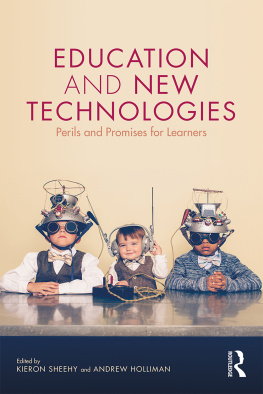
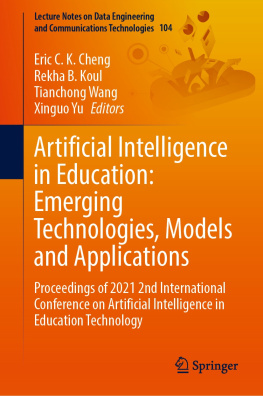

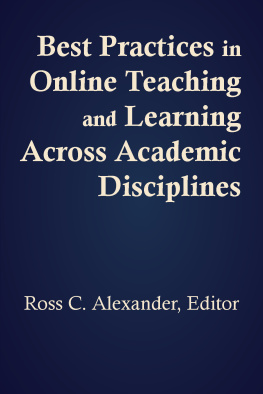
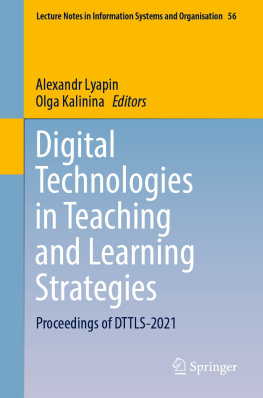
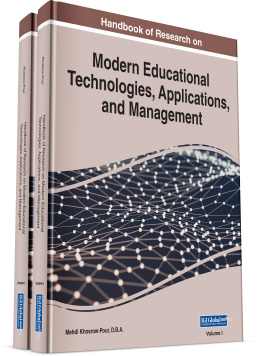
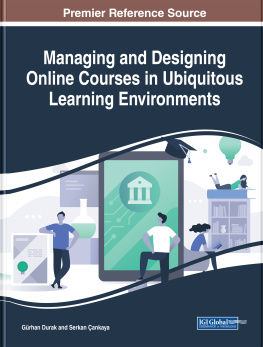
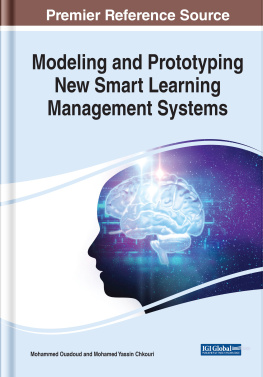

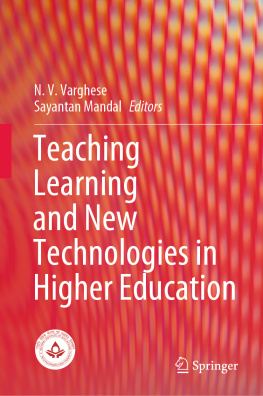



 George Veletsianos
George Veletsianos